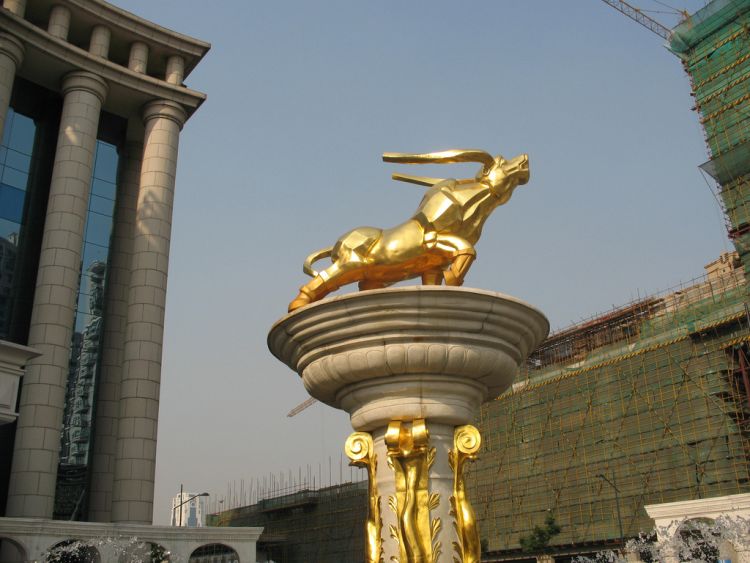
While the Passover and the Red Sea crossing are the main events of Exodus, the goal of the exodus is even more profound. The tabernacle shows us that God’s goal in the exodus to dwell with his people.
This week I have more evidence.
Not the First Sin
The golden calf incident is found in Exodus 32. But this was not the first Israelite sin Moses recorded.
- Before crossing the Red Sea, God’s people questioned his faithfulness (Ex 14:10–14). The Egyptians were closing in, and the Israelites were afraid. They thought death was near and wished Moses hadn’t bothered with their plight at all. Moses told the people not to fear, to stand firm, and to wait for the Lord to fight for them.
- Shortly after Moses’s song of praise, the people complained about a lack of drinkable water (Ex 15:22–24). Moses cried to God, and the Lord provided a log to throw into the water which turned the water sweet.
- The Israelites grumbled with hunger (Ex 16:1–8). They wished to die as slaves in Egypt with full bellies than as free men in the desert without food. In response, God provided quail and manna.
- After explicit instructions regarding the collection of the manna, some went out to gather on the seventh day (Ex 16:27–30). The Lord emphasized the purpose of the Sabbath (v.29), but, instead of punishing the law breakers, he provided rest for the people (v.30).
- The people complained again about lacking water (Ex 17:1–7). Moses knew the people were testing the Lord. He feared they would stone him, and he cried out to God. The Lord provided water for the people from the rock.
God’s Response to Sin
Taking all of these accounts of sin together, we don’t see any strong response from God. Both Moses and God call out sin when it happens, but there are no deaths, sicknesses, or visible consequences from these sins.
The golden calf is a different matter. In reaction to this sin (Ex 32:1–6), God planned to wipe out the people and start over with Moses (Ex 32:7–10). Moses broke the tablets of the law (Ex 32:19), destroyed the idol and made the people consume it (Ex 32:20), and commanded the Levites to kill about a thousand of the Israelites (Ex 32:28). God also sent a plague on the people (Ex 32:35) and planned not to go with them into the promised land (Ex 33:3).
This sin deserves and receives a swift and stiff response from God. How does this tell us about God’s purpose in the exodus?
Other Accounts
The narrative in Exodus 32 is not the only biblical commentary on the golden calf.
- Psalm 106:19–23 — The psalmist writes that the people exchanged the glory of God for the image of an ox. They forgot God, their Savior, who had done great things, wondrous works, and awesome deeds for them.
- Nehemiah 9:16–22 — The people committed “great blasphemies” by looking to a golden calf as God. Nehemiah emphasizes God’s mercy in staying with the people, providing them with the pillar of cloud by day and the pillar of fire by night (his presence!).
- Deuteronomy 9:6–21 — We are reminded that the mountain was burning with fire (v.15) and we are told that God was ready to destroy Aaron for his role in the incident. Moses had to plead with God specifically for Aaron’s life (v.20).
As God was instructing Moses how to build the tabernacle, the place where God would dwell with his people, at that very same time the people abandoned Moses and forgot about God. They attributed the saving work of YHWH to a metal cow.
God reacted so fiercely to this sin because his people were acting like they didn’t know him at all. The golden calf—this is who brought you out of the land of Egypt? This is who brought the plagues on Pharoah? Who made a dry path through the Red Sea? Who closed up the waters and drowned the pursuing enemies? Who provided victory over the Amalekites? Who provided quail and manna? Who provided water from the rock? Who thundered from the mountain and caused it to smoke?
God’s reaction was proportional. He brought them out of Egypt so that he might dwell with them. They rejected him—forgetting him and trading in his glory. So God was prepared to reject them too.
Application
God’s people deserved his wrath. They forgot him, and he could have forgotten them. But that’s not how YHWH works.
As a result of Moses’s intercession, God stayed his hand. He didn’t start over with Moses. He didn’t turn his back.
On this side of the cross, we understand God’s faithfulness and presence more deeply. Because God poured out wrath on Jesus, we are spared. Because Jesus was forsaken by all—even his Father—we are not abandoned. For the children of God, this promise is sure: “I will never leave you nor forsake you” (Heb 13:5).
The implications are profound. God goes with us—he remains with us—even when we sin. A morning of sin does not mean an afternoon without God. He loves, he persists, he remains faithful despite our unfaithfulness.
We all need this truth, especially when facing persistent sins. So, Christian, digest this good news. And encourage a brother or sister in Christ with the reminder of God’s faithful presence. It is not some happy side effect of his saving love; his abiding presence is the very goal of his salvation.
- Links for the Weekend (2026-02-13) - February 13, 2026
- Links for the Weekend (2026-02-06) - February 6, 2026
- The Parable of the Dog and the New Master - February 4, 2026

